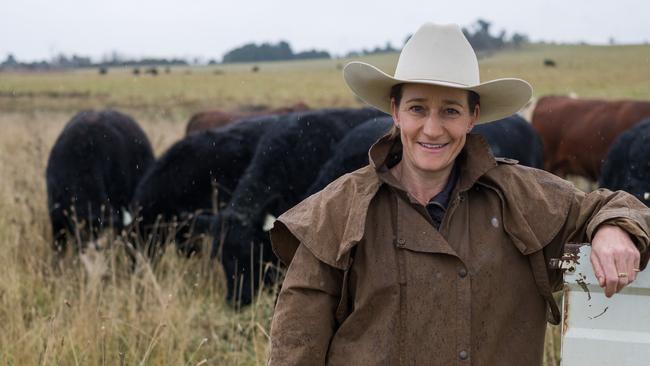How cattle farmers made their voices herd
The Brett family was on their Northern Territory cattle station thousands of kilometres from Canberra when a snap ban by the Gillard government vetoed their livelihood overnight.

The Brett family was on their Northern Territory cattle station thousands of kilometres from Canberra when a snap ban by the Gillard government vetoed their livelihood overnight.
Then agriculture minister Joe Ludwig announced a six-month suspension on cattle exports to Indonesia on June 7, 2011 - 10 years ago on Monday.
The ban was in response to an ABC Four Corners program that broadcast horrific footage of Australian cattle being mistreated in Indonesian abattoirs.
The decision rocked Australian cattle producers, with the residual effects of the ban still felt a decade on.
Emily Brett and her late husband, Dougal, spearheaded a class action against the ban, which the Federal Court last June ruled was unlawful, “capricious” and “unreasonable”. After 18 months of deliberation, judge Steven Rares concluded Mr Ludwig had made the ruling in the absence of appropriate advice and knowing it would be costly for the industry.
Ms Brett, who now works on a cattle farm near Armidale in NSW, hopes the case’s legacy will be a cautionary tale to future ministers and mean “the government will never make a decision like this again”.
“We’ve made history and changed the way governments make future decisions and not just for live exports and agriculture, but decisions that affect all Australians,” she said.
“We wanted to make sure the government in the future would do their due diligence and then decide whether … to make their decision. That wasn’t done in this case and we think now, moving forward, there will be a lot more consideration put into decisions.”
At the time of the ban, which lasted five weeks, the family’s business - Brett Cattle Company - ran about 20,000 cattle at their property near the Northern Territory-West Australian border.
They argued the ban lost them the opportunity to sell about 2776 head of cattle - equivalent to losses worth about $2.5 million.
The court decision granted a pathway for hundreds of farmers, exporters and transport workers and others across north Australia to claim compensation of up to $600 million. The class action case is still open, with plaintiffs joining each day, but many rural businesses, particularly those in towns serving family families, will never receive compensation.
National Farmers Federation president Fiona Simpson agreed the case allowed the industry and participating plaintiffs to feel vindicated. “That decision alone has meant the industry has been able to draw a line in the sand,” she said.
“They felt a huge injustice was done to them by then minister Ludwig and his decision. It caused immense pain and suffering to many businesses, farmers and everyone in the supply chain.”
At the time of the ban, Australia sent about 520,000 head of cattle to Indonesia each year in a trade worth about $330 million. Animals Australia, one of the not-for-profit organisations whose undercover footage was the centrepiece of the Four Corners report, argued that the disruption acted as a “circuit-breaker” for public outrage. “Without the resultant reforms embraced by the industry, the trade may not still be operating today,” the organisation’s strategy director, Lyn White, said.
The federal government established an exporter supply chain scheme in July 2011 in the wake of the Four Corners episode to ensure Australian livestock traded overseas were treated according to global animal welfare standards up until the point of slaughter.
“The introduction of an exporter supply chain assurance system saw practices Australian exported animals had been subjected to for decades, such as transportation in car boots, roping slaughter, livestock market sales and private slaughter prohibited under Australian regulations,” Ms White said.


